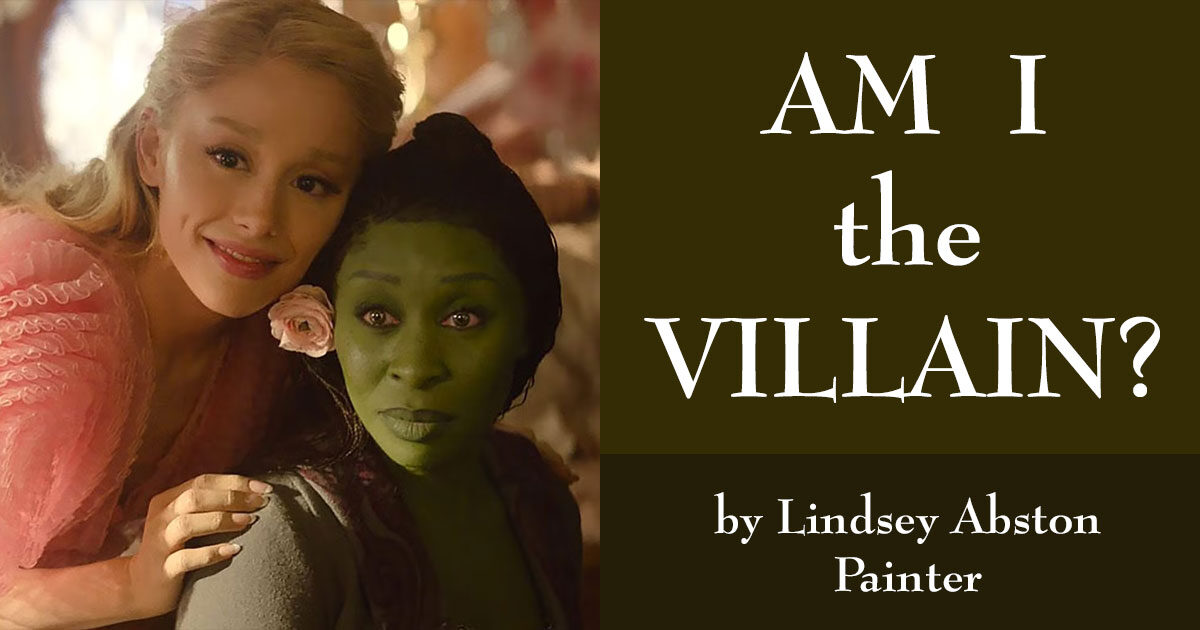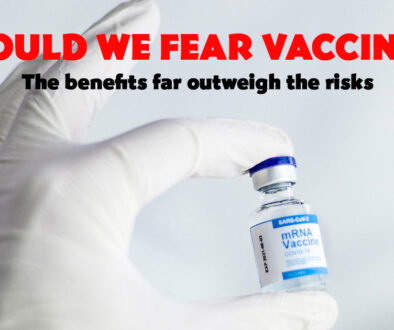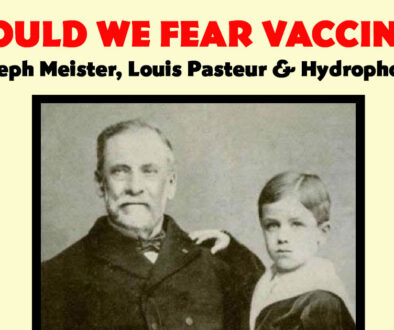Am I the Villain?
by Lindsey Abston Painter | 18 March 2025 |
“We stopped checking for monsters under our beds when we realized they are inside us.” – Mr. Smith, The Matrix
I am drawn to stories that feature a villain as the protagonist. I sometimes have good-natured arguments with my dad about it. He doesn’t understand why I would like stories where the main character isn’t someone good.
And you might agree with him. I’ve heard others say it is an alarming trend in entertainment.
But if it’s alarming, why is it so popular? More and more books, movies, television shows, plays, and songs are written from the perspective of the villain. One of the biggest movies of 2024 was Wicked, a story told from the point of view of the wicked witch from the Wizard of Oz.
The world is getting so very complicated. Everything is less defined, and more open for interpretation. Fewer things are simple and clear. Life is speeding up. Expectations are higher than ever. We are asked to manage more and more things, and feel like we’re falling farther and farther behind.
Even living an ethical life isn’t as easy as it once was. All of us have to make compromising choices every day.
An example: all of us almost certainly possess clothing or food that involved de facto slave labor in the making of it. Even the phone or computer you’re reading this on. You probably shop at Amazon or Walmart in spite of the wide awareness that those companies can sometimes treat their employees badly, and are intentionally driving small businesses into the ground so they can control the market.
Even if you are very careful, and work hard to avoid products and companies that are doing harm to the world, it is nearly impossible to do so.
Who you voted for—or if you decided not to vote—makes you a villain in many people’s eyes. Supporting one group or another, shopping or eating at one place or another, dealing with your personal trauma in one way or another, changing your mind, or regretting past actions—all of these can get you branded as a villain.
Perspective
Being a villain, it turns out, has a lot to do with perspective.
When we get down to it, categories such as “good” and “bad” are difficult to define. There are a lot of complicated characters in the Bible. Is King David a hero or a villain? What about Moses? Abraham? Joseph? Some people are unquestionably better or worse than others. Evil exists, and some people gleefully participate in that evil. But aside from those more obvious, mustache-twirling Boris & Natasha types, how do we define a villain exactly?
One criterion we might use to decide if someone is a villain is this: a villain hurts other people. But even that isn’t clear-cut. People who hurt others might also be capable of love and tenderness. They might have intense trauma or mental illnesses that they haven’t dealt with, or are trying to deal with but having setbacks.
Has someone ever been hurt by you? I’ll bet you had a good reason. It might not have even been your fault. Maybe the person misunderstood your intentions. Maybe you had very few good choices. Maybe the person you hurt is being irrational.
That doesn’t really matter, though. In that person’s story you are the villain. I am confident that I am the villain in some people’s stories.
In some villain stories the villain isn’t a villain at all but has been unfairly labeled as such. In the popular Wicked musical, the main character gets on the wrong side of powerful people and gets labeled a villain, so no one will take her side.
Come to think of it, Jesus was also labeled a villain for getting on the wrong side of power.
Even people who commit great acts of evil can rationalize their actions in the belief that under the circumstances anyone would do the same. And that’s the real question. Under those circumstances would I do the same?
Why?
And that is why I enjoy the stories of the villains. The question isn’t whether a person is bad or good. The question is “why?” The question is, what is it about that person that drove them to those actions, and if I were in their shoes, what would I have done differently?
We live in a world that is trying its hardest to villainize people. Lots of people. Among the lists of people that I’ve heard characterized as villains are immigrants, politicians, police, trans people, CEO’s, Democrats, Republicans, and more! I have my own opinions about who the villains are in our society today, but going by the list above, we’re all villains!
You’re a villain to somebody. So am I. Reflecting on the stories of villains helps us reflect on ourselves. It keeps us humble. It reminds us that if we aren’t careful, if we don’t think critically, if we don’t question our own irrationalities, our own biases, we could become those villains too.
And it reminds us that sometimes we become the villain even when we have good intentions. That sometimes our actions hurt others even when we meant no harm. What times in my life did my actions hurt others, even if I intended no harm? And how can I take responsibility for that harm?
So as our society gets more divided, more hateful, and more afraid, remember: the villains in our stories have something to teach us. They remind us that we are all capable of villainy. And that Jesus chose empathy, kindness, and love, even in the face of dire circumstances.
If we want to avoid accidentally becoming the villains of this story, we should do the same.
 Lindsey Abston Painter is a teacher, and a member of the editorial team of Adventist Today.
Lindsey Abston Painter is a teacher, and a member of the editorial team of Adventist Today.




